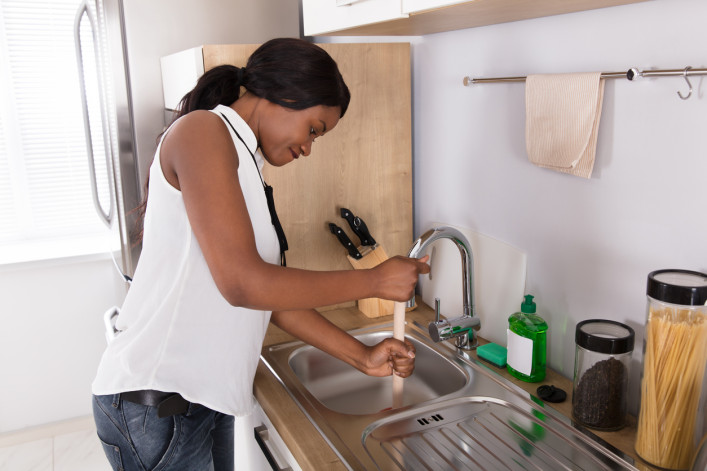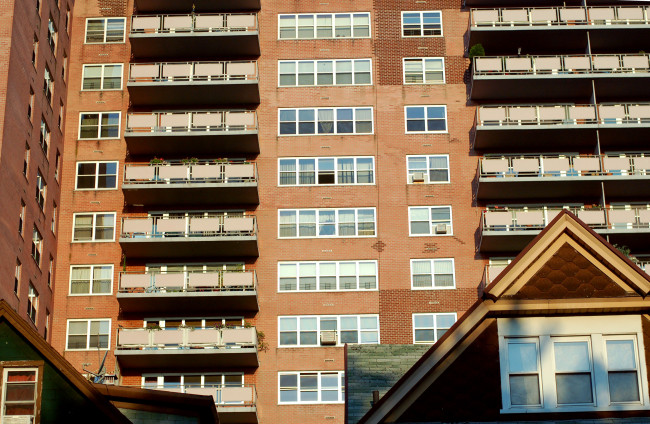Who pays when things break in a New York City rental?

When the pipes back up, you'll want to establish whether it's the tenant or landlord who's responsible. iStock
It's inevitable that some things will break in a New York City apartment, but it's not always immediately clear who pays to fix things when they do. Figuring out whether you or your landlord pays depends on what kind of lease you have, and it's a good idea to familiarize yourself with it before things go bust.
In rent-stabilized and rent-controlled apartments, the warranty of habitability requires your landlord to ensure your building is safe and livable. If your rent isn't regulated, you are also covered by the warranty of habitability, but in some areas the responsibility shifts to you as the tenant, according to the terms of your lease. That, in turn, can be affected by the market.
"When the market is strong, landlords have a little more control and they'll pass more responsibility onto the tenant," says Lawrence Chaifetz, real estate attorney with Chaifetz and Chaifetz. "When the market is softer and the landlords don’t have such control, landlords will take on more responsibilities or give concessions that they wouldn’t normally."
When you're determining who is responsible for breaks, blockages, and bugs, here are the things to consider.
What type of lease do you have?
In rent-regulated units, the warranty of habitability means the landlord must provide heat, hot and cold water, utilities like gas and electricity and is responsible for keeping the building safe and pest-free. The landlord will also be responsible for providing a lock on the front door, plus smoke and carbon monoxide detectors. The Department of Housing Preservation and Development says "tenants should expect to live in safe, well-maintained buildings that are free from vermin, leaks and hazardous conditions."
If you have a market rate lease, the landlord is still obligated to follow the warranty of habitability, but you should check the terms of the lease and any riders that may put things like appliance repair or pest control under the tenant's responsibility.
How did the breakage happen?
When it comes to paying for a break or blockage, it depends on who caused the problem.
"It will usually fall to the responsibility of the landlord," says Chaifetz, "unless the problem was caused by the negligence of the tenant." He says he recently dealt with exactly this kind of problem. "Somebody was putting non-disposable wipes down the toilet, and not only did it jam their pipes, but it jammed the line below them and the pipe exploded. It was an insurance mess with the landlord and tenant arguing about responsibility. The tenant put products in the toilet that were not disposable. It wasn’t intentional, but the damage was ultimately the responsibility of the tenant."
Chaifetz says it's fairly easy for plumbers and appliance technicians to go in and assess why a problem is occurring and then identify who is to blame. "About 75 percent of the time, you can generally tell whether it is tenant negligence or not," he says.
Is a utility company involved?
Sometimes there are situations where a utility company is not providing a service and it is beyond the control of the landlord. In these circumstances, the landlord is generally required to provide an abatement to the tenant. Chaifetz says, "if there’s a break in the gas line and the gas company can’t provide gas to the tenant, that’s a gray area where you are paying for gas but it's not being provided. The landlord will do some sort of rent accommodation."
Is another tenant involved?
A landlord needs to make sure the warranty of habitability of all tenants is protected. That means if another tenant is smoking and it's getting into the apartment below, the landlord needs to take responsibility. Chaifetz says, "even though the landlord is not doing anything wrong, they are required to enforce the rules of the building." Loud music at unreasonable hours, bouncing balls off the walls are the other kinds of things that fall into this category.
You Might Also Like


























